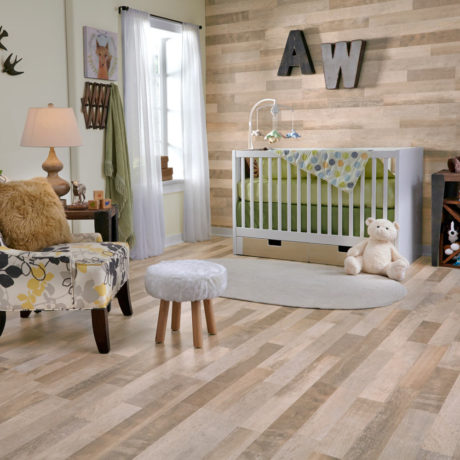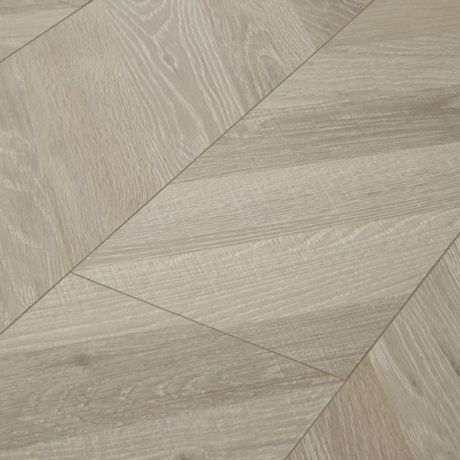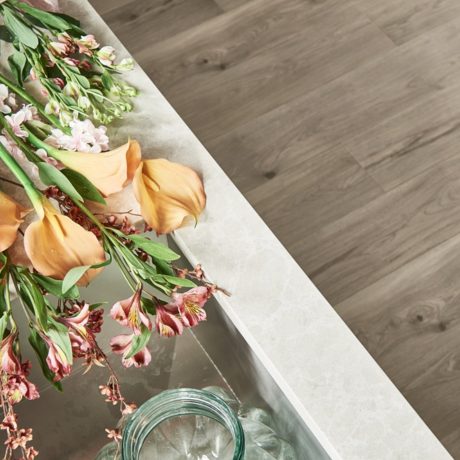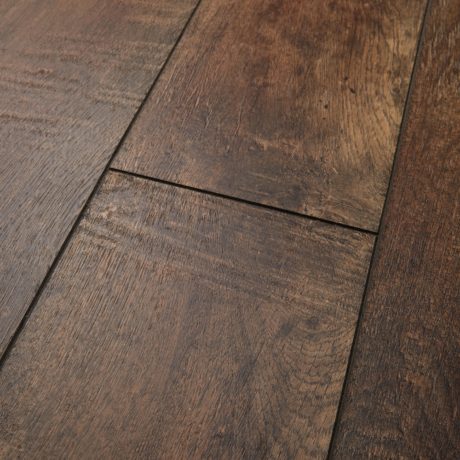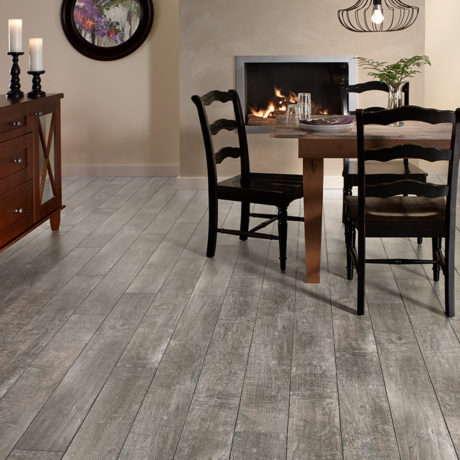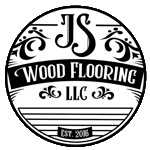Does Laminate Flooring Increase Home Value?
Some flooring can increase the home value more than others; the real challenge in reselling a home is knowing which remodeling projects will increase or decrease the value of any property.
Besides, every part of a house determines if the buyer will take it or leave it, including the flooring of your home; buyers can walk away from homes with damaged flooring the same way they will walk away from homes that have little or no curb appeal.
Furthermore, if you plan on reselling your home, you need to consciously pick out the flooring that increases in value, and not depreciate. Laminate flooring is stunning, durable, and an excellent alternative to traditional hardwood floors or carpeting. However, many homeowners are not sure whether laminate flooring will increase the value of the home or not.
The answer depends on several factors like the current flooring and what potential buyers want. As stated earlier, laminate flooring is an exceptional alternative traditional hardwood and even stone, and it is durable. But before you dashed to the store to get laminate flooring for your home, it is necessary to know the pros and cons of laminate flooring.
Pros
- There are several benefits homeowners can enjoying for choosing this flooring type, and they include:
- It may increase its value to potential buyers
- It is extremely durable
- It is scratch-resistant and requires low-maintenance
- It is stain-resistant and immune to discoloration
- It is cheaper than hardwood or bamboo flooring
- Besides, if you want to increase the visual appeal of the home can do so without having to break the bank.
Cons
Even though there are many advantages to installing laminate flooring, there are some downsides to this flooring type.
- People who prefer natural building materials like hardwood and stone may not value the home as much as they would appreciate solid wood or stone.
- Laminate flooring can be noisier than other forms of flooring and does not absorb sound.
- It is not water-resistant, and can easily warp in areas with high moisture content.
- Extensive damage done to laminate flooring requires replacement, and not fixed.
What To Consider Before Getting Laminate Flooring
As a homeowner, the choice to install laminate flooring depends on you. If the current flooring of the home is damaged, replacing the floor with laminate will increase the value of your home. Nonetheless, it is not wise to replace the flooring with laminate if the carpet or hardwood is slightly bad; it will not improve the asking price of the home.
Furthermore, many homebuyers prefer wood regardless of the condition, replacing the hardwood flooring with laminate, instead of repairing the floor will not make good fiscal sense.
In conclusion, laminate flooring in good condition increases the value of the home over traditional wall-to-wall carpeting. Nonetheless, hardwood floors are more valuable to potential homebuyers than laminate flooring.
Before replacing or repairing your home flooring, consider the condition of the flooring, because the expense of repairing or changing the current floor and the overall appearance advantage laminate flooring would bring to your home before making your decision. Also, you can speak to a professional about changing or replacing the flooring for better and tailored advice.
What Floors Do Homebuyers Want?
Hardwood is the top choice for many homebuyers for years and to date. Homes with wood are easy to sell, and the majority of homeowners with hardwood as their floor choice sell their property for more money.
Also, homebuyers are willing to pay for homes decked out in hardwood. However, not all hardwood is the same; ensure to know the current trend before repairing or changing floors. Besides, a hardwood that is hand-scraped finished, old, or has an engineered look. Even though many homebuyers prefer hardwood, sellers can still make a great sale on their homes even though it is not fully floored with hardwood. And here is why:
Contrary to popular belief, you don’t need an ideal flooring or hardwood flooring in EVERY room, including bathroom; there are rooms where it matters more than others.
Buyers prefer to see hardwoods in the main areas of the house, such as hallways and living rooms.
Other Types Of Flooring That Increase Home Value
Another excellent flooring that improves your home value is vinyl flooring; it is durable, low maintenance, resilient, and relatively inexpensive.
Vinyl floor has more texture and depth today than it did years ago, it mimics hardwood, stone, and tile. Vinyl flooring comes in a wide range of colors, and it is soft underfoot, which means you can stand on the floor for long periods.
Unlike tile, vinyl flooring is warm to the touch, and it comes in various levels of gloss so you can get a range of appearances.
Vinyl Flooring Options
Vinyl has four layers, which are protective urethane topcoat, protective clear vinyl layer, printed design layer, and a fiberglass backing. Also, this flooring is available in sheets, tiles, and planks.
Sheet Vinyl
These types of vinyl usually come in 6 or 12-foot-wide rolls; it is quite easy to install, and it is suitable for rooms with moisture. Just like laminate flooring, sheet vinyl comes in a variety of colors and designs.
Vinyl Tiles
Vinyl tiles can be installed without the help of a profession, and it can be laid in any orientation, from diagonal to checkerboard. In addition, you can grout some vinyl for a more realistic appearance.
Vinyl Planks
Vinyl planks are designed to look like hardwood; vinyl planks come in the same size as wood planks and have the same realistic features like texturing and beveled edges.
In general, vinyl flooring is easy to clean; you can sweep, dust, or vacuum regularly, and can sometimes, wipe the surface with a damp cloth or more. Moreover, you can occasionally strip and reapply polish to glossy floors as necessary. However, you need to avoid buffing the surface.
Furthermore, vinyl scores another point as pet-friendly flooring; quality vinyl floors can withstand pets’ claws and their messes better than many other types of flooring.
Vinyl flooring is suitable for kitchens, bathrooms, laundry rooms, playrooms, and hallways. In addition, you can install vinyl on any flat, dry, and clean surface. However, it is advisable to use plywood as an underlayment before installing vinyl.
